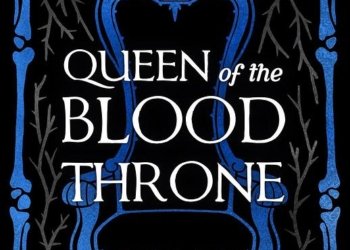No products in the cart.
The Still Small Voice by Brenda Stanley
Madison Moore was up in an LDS neighbourhood in Utah, but ever since she went for college, she has been the family outcast. She has created a new life for herself with a new family, but she is forced to return when she discovers that her father is ill and needs to see her. A sixteen-year-old girl was killed in a fall forty years ago, and her killer was sent to prison.
The prisoner is not guilty, Madison’s father says, and it is his dying wish for his alienated daughter to look into it and put things right. But Madison will find that the old crime is still very much a part of this little, closed-off neighbourhood. The novel depictions of this way of life are frequently more sensational than believable, and as a Brit, I have no personal experience with LDS communities.
In contrast, Stanley presents what appears to be a true and realistic perspective on the difficulties of growing up in such intensely religious environments, where the laws are significantly different from those of the surrounding secular world. By no means is it an uncritical representation; rather, it has the air of knowledge and makes for interesting reading.
The gradual disclosure to the readers of the real reason Madison became a pariah in her own family is matched by her quest to learn the truth about the 1981 murder. Of all, it is entirely in keeping with their usual behaviour for Madison’s family to refrain from discussing what Madison did to earn their rejection. Stanley is able to create suspense without appearing to obfuscate information, which is a feat that mainstream authors surprisingly frequently fail to pull off.
The last twist in Madison’s tale, which explains why she had to leave her family, appears only at the very end and sheds new light on all the parallels between her tale and the 1981 murder. It is tough to talk about without giving anything away, but I did consider whether it was wise to keep this information a secret from the reader in this particular case. Stanley would have been able to consider how LDS youth had changed between the 1980s and the 2000s if we had known this about Madison earlier.
Of course, it’s possible that the expectations placed on those young people haven’t altered, but even that possibility would have merited investigation given the notable changes in social views in the outside world. As things stood, I thought the author’s deception was a little unfair. Despite this, I thought reading The Still Small Voice was a fascinating and intriguing experience.
About The Book
Madison Moore has been estranged from her family for years, but when her dying father summons her home, she reluctantly makes the trip back to the place that still evokes heartache.
Her family’s reception is lukewarm. They still hold the strict religious beliefs that cast her out. But when her father tells her about a murder years before and that he has proof the woman in prison is not the killer, Madison finds herself in the center of a decades-old mystery.
Painful reminders of why she left home haunt her as she attempts to accomplish her father’s dying wish to exonerate the woman who confessed. As she follows the trail of clues, Madison discovers the shocking reason her father asked her for help and how his confession relates to her own tragic past.
The Review
The Still Small Voice
9 Score
Brenda has a way with twists and turns that are done in a deep psychological and emotional manner. Her book describes a small town religious culture in the 80's and how lonely and painful it was for those who "went off the deep end" or were not part of the religious majority. She pulls from the experiences of so many "silent people". It is certainly a mind scramble. You won't be able to put it down - the murder mystery is intense, the characters are deep, some full of pain and destruction and some show amazing strength and hope within their pain. This is a mystery born out of truth in experiences - you will love "The Still Small Voice."










